Millennial Habits That Are Totally Different From The Baby Boomer Generation
Millennials have been accused of killing everything from napkins to gyms. Commonly described as narcissistic and entitled, this generation has become an easy target for frustrated baby boomers who are trying to cope with the changing times. Millennials are not like their parents, just like baby boomers were not like the generation who came before them... and that's okay.
While accusing the generation of ruining things may seem like innocent fun, there is actually a lot that can be said for the habits and trends they have adopted. I mean, they're actually talking about their personal finances and only buying houses they can actually afford. Millennials keep on proving that it's okay to do things differently than their parents.
They Don't Buy Cars
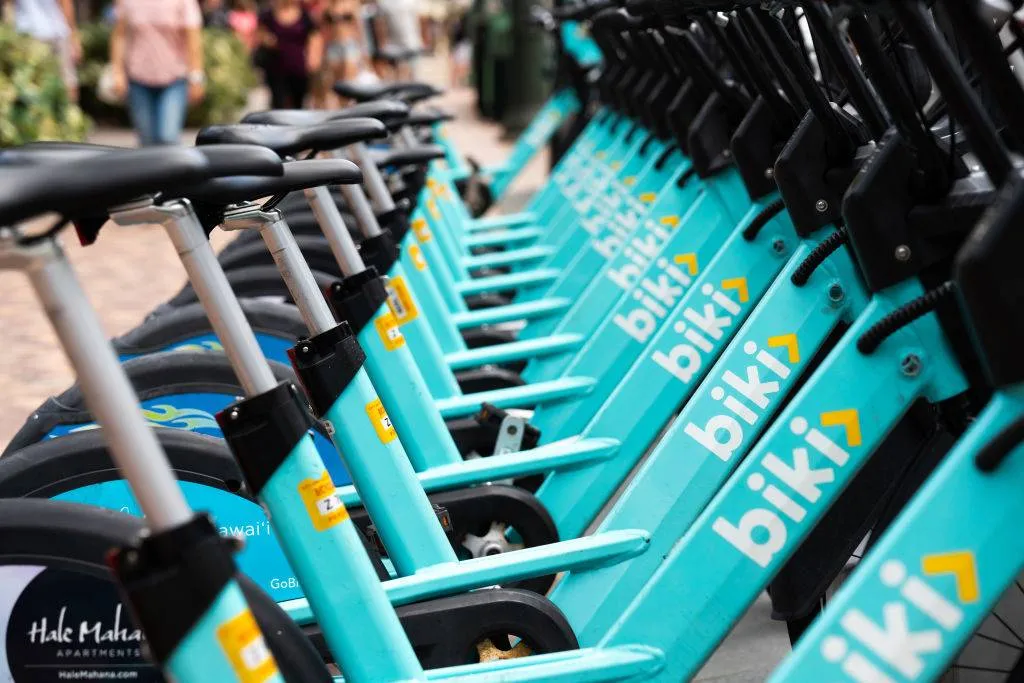
While some believe failing car sales are due to an environmentally friendly generation, the reality is that fewer millennials need cars, and even fewer can actually afford them. Many millennials either work in big cities with ample public transportation or they are increasingly working from home or remote offices. Couple this with a generation with high student debt, and it's easy to see how many can't afford an expense that includes a monthly payment, insurance, gas, maintenance, and repairs.
This change certainly isn't a bad thing! Fewer cars mean less road congestion. Cities have noticed the change as well, and many have made accommodations to their public transit or provided new programs such as bike shares.
They Don't Follow The 9-5 Workday

A generation with different priorities means one with a different workday. The 9-5 workday arose after WW2 and was based on a single-breadwinner family structure. With shifting industry, gender roles, and career possibilities, millennials have strayed away from the 9-5.
Freelancing and self-employment are increasing, and with that, workplace flexibility rather than workplace routine has taken priority over pay. Millennials are also looking to make more of an impact, and many do not view the traditional 9-5 cubicle job as fulfilling that desire. Adding to all of that, a globally connected world means you can work anywhere, anytime, and still pay your bills.
They Aren't Getting Married, Or Divorced, As Much

Rather than dating, getting married, moving in together, and having kids, millennials are messing all that up. This is what many have viewed as a routine-reversal. Millennials are moving in with their partners before deciding to get engaged, and when they do get married they are doing it later in life. As a result, divorce rates are decreasing too.
Divorce rates are decreasing as many millennials choose to never marry at all and instead opt for common-law partnerships. Economics can be a part of this choice. WIth more debt, many millennials don't see a reason to drop cash on expensive wedding rings and lavish ceremonies.
They're Abandoning Big Box Stores

It doesn't take an economist to understand that millennials stray away from big box stores because they are less convenient, and cost more, than online retailers. With an increase in not only online availability of products, but also same-day-delivery, millennials would rather order that nightstand from Amazon then drive to multiple retailers to find one instead.
Adding to that, new technologies such as Google Home and Amazon Echo have made it possible to order home staples such as toilet paper and toothbrushes straight to your door.
They're Bringing Back The Library

While many believe that millennials killed the library, they are actually the ones bringing it back too. Digital technology has made it so that almost any information, books included, are available at our fingertips. Millennials have dealt with this massive shift in information absorption by repurposing libraries to function closer to a community center.
Along with books, many new libraries now have workbenches, free WiFi, 3D printers, and tech classrooms, all of which are intended to provide a place for all ages to gather and increase their skills, whether it be by book or through a new form of technology.
They Are Over Traditional Breakfast Foods

In 2016, the New York Times suggested millennials don't eat cereal because they are too lazy to clean up. In reality, millennials still love cereal but as a snack. Traditional sit-down breakfasts like cereal, eggs, or bacon take too much time in the morning. Instead, millennials are opting for quick breakfasts like smoothies, toast, and breakfast bars.
Millennials also aren't buying into the morning sugar craze. Many have claimed they desire actual energy rather than the synthetic sugar rush that most cereals provide. Looks like this generation didn't inherit their parent's sweet tooth.
They Discuss Their Personal Finances

Discussing your salary used to one of the biggest taboos at work, but increased awareness of wage gaps have changed this. In fact, discussing salaries has increasingly forced workplaces to become more transparent. Surveys have found 30% of millennials feel comfortable discussing their salary and pay discrepancies, while only 8% of baby boomers held the same views.
Some believe this is a shifting attitude toward personal finances in general. Millennials discuss finances more with friends and family, alongside their coworkers. New beliefs are that salaries should be less competitive, and more collaborative.
They Cheat On Each Other Less

Millennials have been criticized for their non-traditional views on dating, with an emphasis on fewer relationships and more casual relationships, but this has resulted in less cheating than their parents. Millennials are less likely to cheat because a hookup or quick fling is easy to achieve now with apps like Tinder. They also wait longer to marry, so they spend more time before marriage exploring other relationships.
Baby boomers average 11 intimate partners in their lifetime, while millennials average only 8. Maybe millennials are just pickier?
They're Bringing Back Small Crafts

With distrust of corporations and big box stores comes the reemergence of small business and craft. Craft brewing is representative of a larger trend, as millennials are willing to pay more for unique, high-quality products rather than pay less for generic products. Studies have shown that millennials want to connect with the back-story of the beer and support local brews.
This is seen in a variety of other industries. The success of online sellers such as Etsy has provided millennials with a convenient supply of unique items.
They're Not As Interested In Getting Drunk

Millennials may love craft beer, but apparently, they don't love the idea of getting drunk as much as their parents do. In a survey of millennials, 90% said that getting drunk, particularly in public, is both "messy" and "pathetic". Many of them believe the practice to be uncool and something that the baby boomers used as a coping mechanism. Social scientists have argued that millennials are more open with their issues and do not use traditional coping mechanisms, such as drinking.
This means that millennials are also consuming less alcohol as a whole. While baby boomers still consistently indulge, millennials on average consumer only 5 units of alcohol per week, which equals out to either 2 glasses of wine or 2 pints of beer a week.
They Don't Buy A House If They Can't Afford It
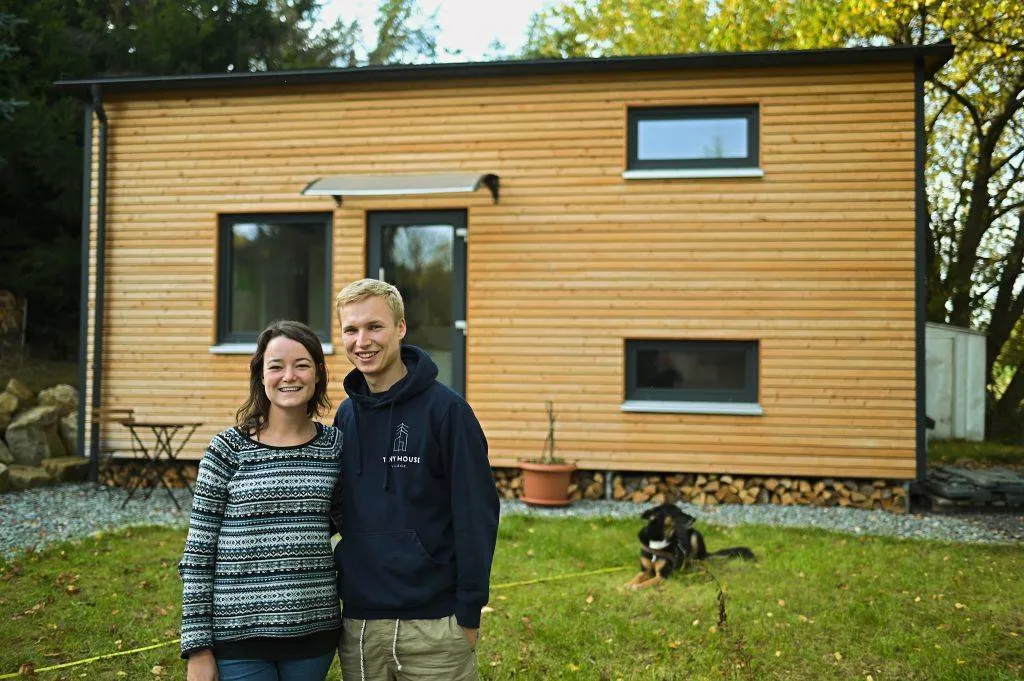
The financial crash and house market burst in 2008 has made anyone today wary of buying a home, but studies have shown that millennials have always been skeptical of this major purchase. The delay in homeownership is said to be a combination of higher debt and a change in lifestyle. Millennials are not getting married or having kids as early, so they don't see a need for a home as early in life either.
Not only are they delaying their home purchase, they're opting to rent longer to find a permanent house. Gone are the days of the "starter home." Millennials would rather wait to find a home they want to be in for a long time rather than purchase multiple homes in their life.
They Spend A Lot Of Money On Their Pets

Millennials have proven to spend way more money on their pets than previous generations. In fact, Forbes reported that there are now more households with pets than those with children. Dogs are the most popular pet of the nearly 70% of American households that have at least one pet.
Treating their pets like a member of the family, Millennials are willing to splurge on luxury items for their pet, and spend extra money to purchase quality food. Because of Millennials, the pet care industry isn't slowing down anytime soon.
They Eat Differently

They eat out more, but not at the usual restaurants. Millennials prefer "fast casual restaurants" like Chipotle, Panera Bread, or Five Guys purely for the convenience factor. Despite eating out more, they tend to generally eat healthier. According to Forbes, they are eating 52% more vegetables than baby boomers.
Combine convenience with healthy habits and you have a growing trend of straight-to-your-door food product companies like Blue Apron. These deliver fresh ingredients to your door, saving millennials the hassle of shopping while still giving them an easy and healthy meal to prepare.
They Are Entrepreneurs

Millennials are no longer buying into the idea of climbing corporate ladders. Instead, they want to create and cultivate their own business. In a study by Bentley University, 67% of respondents said they want to be an entrepreneur, while only 13% said they wanted a traditional career path.
This trend is said to stem from the distrust of big business. Many millennials have seen their friends and family become overlooked or fired in corporate positions, and they see owning their own business as a way to be in control of their career paths.
They Travel Differently

Not only are they different at home, they're different abroad. Rather than travel for escape and leisure, millennials are increasingly traveling for adventure and nightlife. They are more likely to travel to "hot spots" as advertised through celebrities than to the traditional 5-star resort.
Millennials also tend to travel with a purpose. More report traveling to participate in volunteering or gain awareness of social issues. This also means many are not staying in traditional accommodations such as hotels, but instead are trying to experience the local culture.
They're Job Hopping, And That's OK

The term "job hopping" has grown recently, but many prefer to consider it "jumping at the opportunity." It's true that millennials take on more jobs rather than staying in one place longer, but studies have shown that millennials would stay with their employer if they provided more opportunity and better pay.
The result is a generation with a higher education level that are stuck in jobs they are overqualified for. This means a discrepancy between what Millennials can do and what they are doing. Millennials have taken flack for it, but job hopping is really just a term for taking on new, and better, opportunities.
They Are Learning More Online

Millennials are opting out of in-person education and toward self-taught and online education courses. Many don't see a four-year degree as the most viable way to receive an education anymore. Studies have also shown that factors Millennials look for in an education such as collaboration, feedback, and technology are all more readily available on the internet than in a traditional classroom setting.
Combine this with a desire for fast, affordable, and flexible education to match their lifestyles, it's no surprise that online education has grown as a way to receive both an initial education and expand your education while working.
They Are Picky With Their Religion

Many religious institutions have noted they are losing millennials and are trying to change that. One of the biggest critiques is that many religions don't engage in serious social reflection. Millennials want to make a difference in the world and many no longer see religion as providing that.
Competition between denominations within a religion has also been seen as a turn off to millennials, prompting those who do still maintain religious practices to do so in either non-denominational churches or on their own. Travel and increasing global connections have also allowed millennials to explore different religions they may not have been exposed to.
They Are Using Social Media As Diplomacy

Millennials are taking over social media accounts for anything from companies to countries, and they're having fun while doing it. Many are using crowdsourcing and social media to gain a better understanding of how the public views their corporation.
Humor is also seen to be a major success factor in social media diplomacy. All you need to do is take a look at the Twitter account of some major corporations like Wendy's or Taco Bell to see that. Recently, Ukraine's Twitter account was in the news for the millennial who used memes and Simpsons' GIFs to poke fun at Russia.
They Are Developing New Social Systems

Most of us have heard of cryptocurrency and most of us still don't understand it, but millennials are the ones taking the plunge and exploring this new form of currency. Millennials were the first to grow up in a digital age and so it makes sense why they are open to using technology to make big societal changes.
Baby boomers shouldn't be scared. Bitcoin and cryptocurrency, along with the growing legalization of marijuana, have brought millennials to the stock market for the first major wave since 2008.
They Are Skeptical Of Financial Institutions
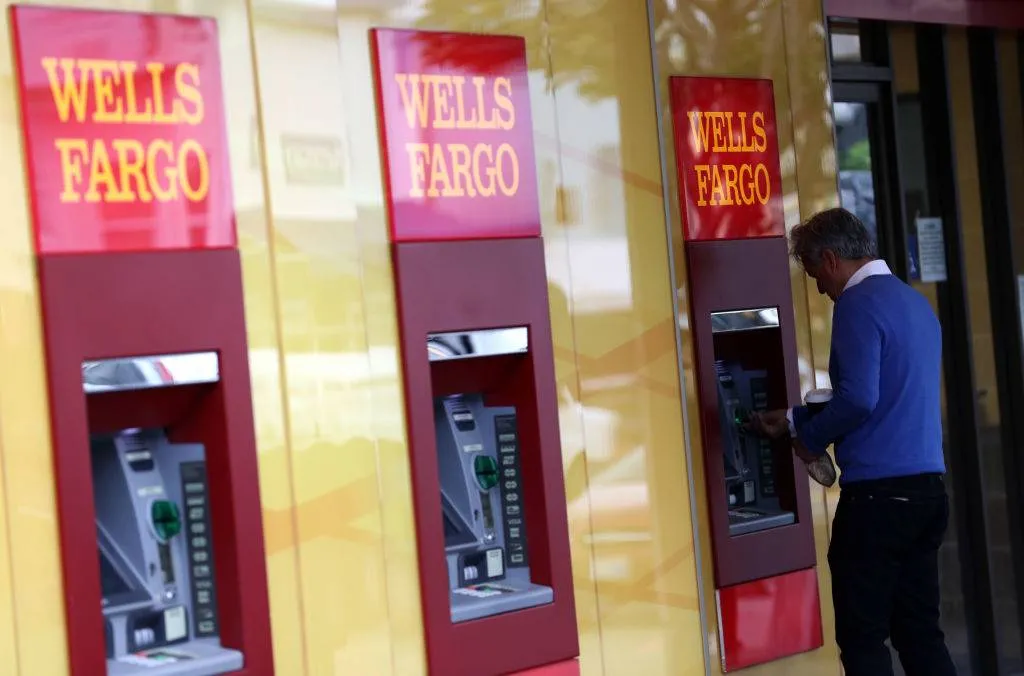
Despite being more open with their finances, millennials are the most skeptical of financial institutions. They were born in the 1980s, a volatile time for banking in America, and have had to live through multiple bubbles and crashes. Banks also have traditionally low-acceptance rates for clients such as millennials, who hold minimal credit history and a lot of debt.
Aside from these major causes, millennials don't believe the financial institutions have their best interests in mind. Many reach out to third parties or the internet for financial advice, and many prefer to bank online rather than go into a bank.
They Carry Crushing Student Loan Debt

Compared to previous generations, millennials carry huge student loan debt. Roughly 60% of baby boomers report never having student loans, but only 36% of millennials can make that claim. Almost half of millennials currently have student loan debt, according to Business Insider.
Student Loan Hero reports that college tuition was also more affordable for previous generations of students. In the dozen years between 2000 and 2012, the number of students taking out loans rose 10%, from 50% to 60%.
City Living: Millennials Are Making It Happen, And This Is How They're Doing It

Millennials spend 79% of their income on housing! The median rent for an apartment in New York City is $4,350. In places like San Francisco, recent graduates can drop roughly 79% of their monthly salary to keep a roof over their heads.
The rising cost of housing has led many millennials to get pretty crafty in order to avoid moving back in with mom and dad. The city-dwelling millennials featured here (including engineers of Tesla and Google) have found a creative solution to the housing crisis. Even if it means renting a box in a living room for $1,000 a month.
This Bay Area Woman Lived On A Sailboat

The Bay Area in Northern California is full of expensive apartments outlined by the picturesque shoreline. You know what's cheaper than apartment space? Marina space. Sarah Patterson, a 24-year-old living in the Bay Area, took matters into her own hands to combat soaring housing costs. Like many millennials, she found her first city dwelling on Craigslist.
It just wasn't a real apartment. Patterson purchased a sailboat and spends between $250 and $1,111 to dock it at the marina (with some additional fees for actually living on board). With the average one bedroom in San Francisco costing an upwards of $3,000, Patterson saves thousands.
These Millennials Lived In A Shipping Container
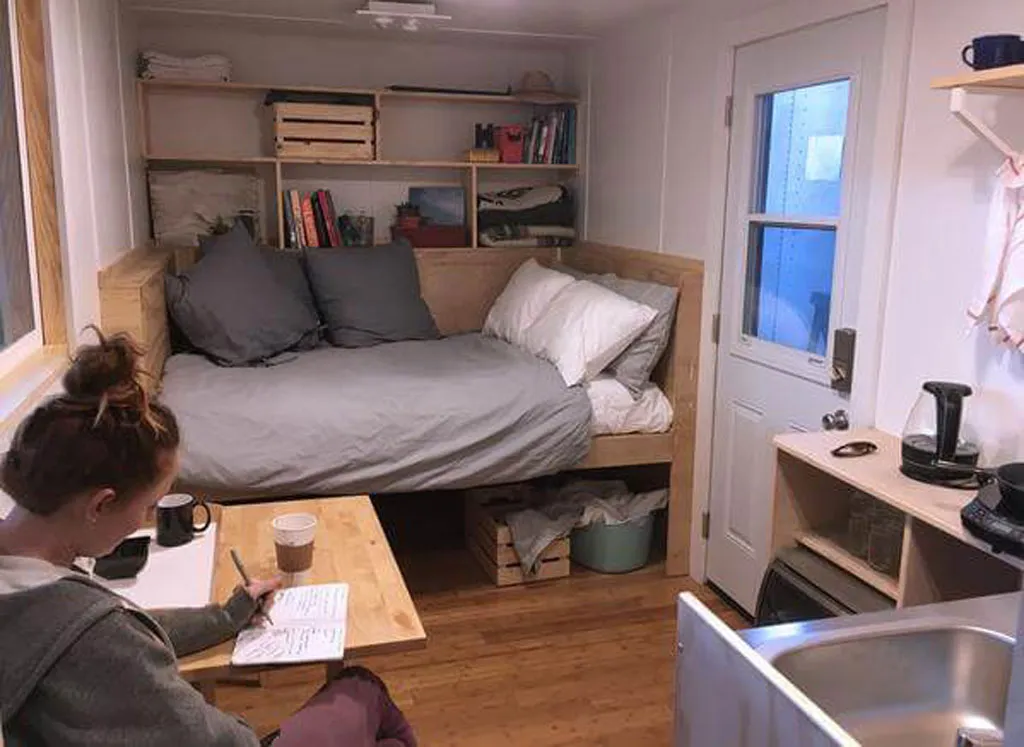
Heather Steward and Luke Iseman were spending $2,200 a month on their San Francisco rent. As far as the Bay Area goes, this was a great value. In fact, it would be a struggle to find rent that cheap in other wildly expensive cities like New York and Boston. But it was still too much. Instead, Stewart and Iseman decided to join the tiny house movement – sort of.
Steward and Iseman didn't just build a regular tiny house, like you've probably seen on HGTV's Tiny House Hunters. Instead, they bought a shipping container and converted it into a home.
The Shipping Container Cost About One Month's Rent
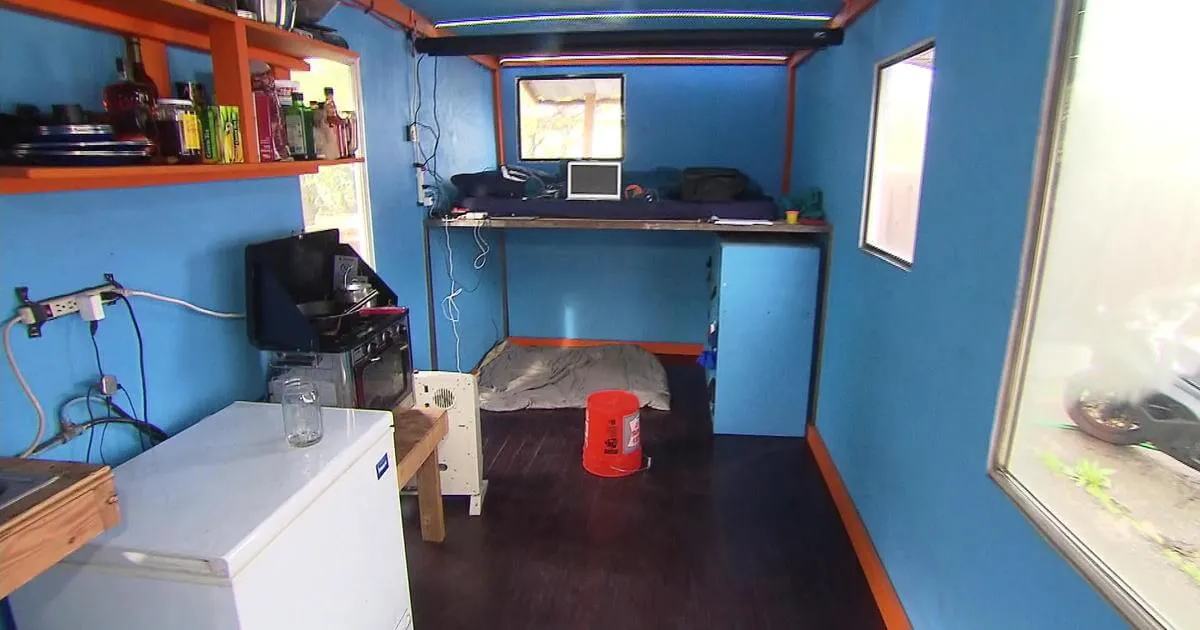
The shipping container cost Steward and Iseman $2,300, just $100 more than a month of their apartment rent. They purchased it online and had it delivered to a vacant parking lot, which they leased. Through some elbow grease, the couple managed to convert the shipping container into a home.
"I was interested in alternative housing," Stewart said. "I don't want to be in debt for the next 60 years, and I also don't want to be in one place for the next 60 years." Through this process, the pair realized their true passion and launched Boxouse, a company that helps hobbyists and alternative living enthusiasts can create their own homes out of shipping containers.
This Guy Slept In A Wooden Crate
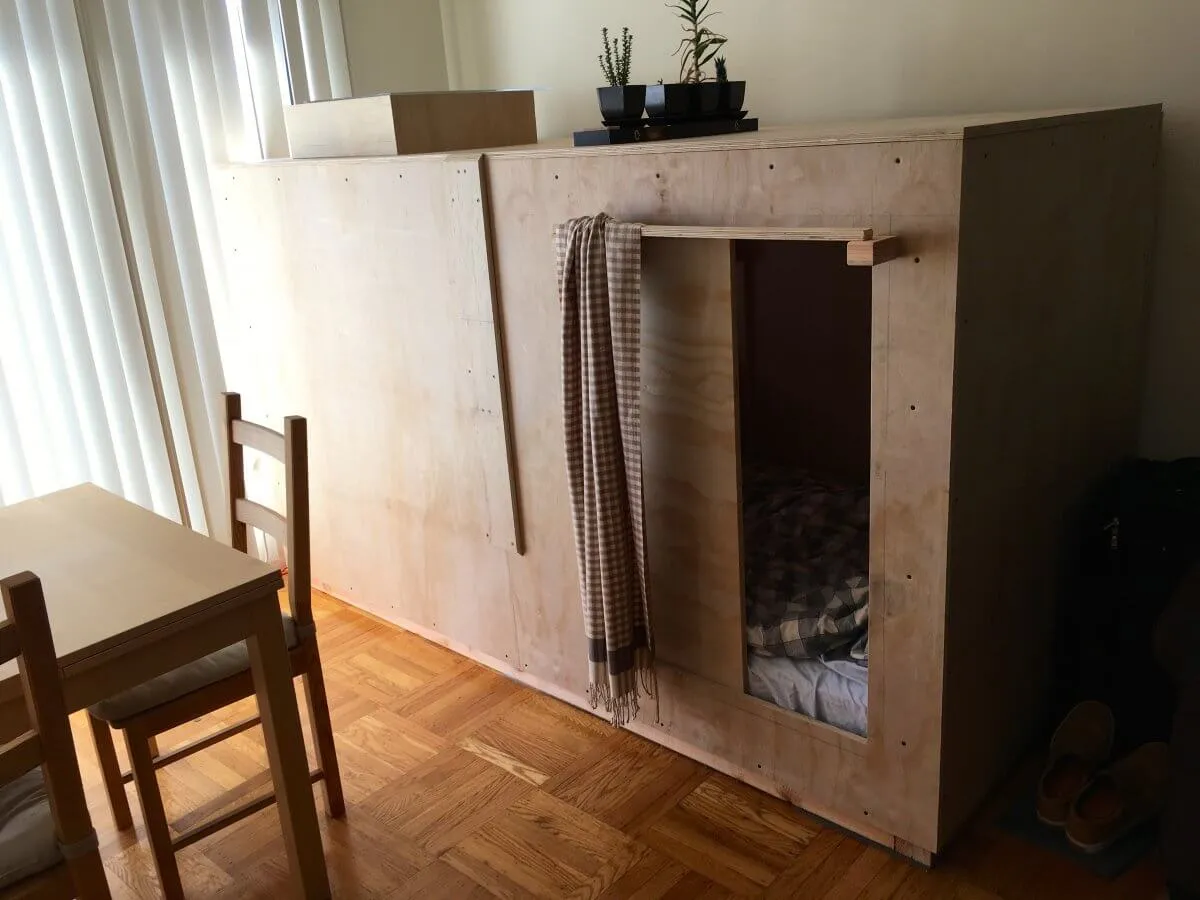
Would you pay $400 a month to live in a wooden crate inside someone's house? Well, you might if you saw the cost of housing in San Francisco. Peter Berkowitz decided to forgo comfort to live in a crate, which he called his "bedroom pod". The crate sat in his friend's dining area. It didn't take him much to craft the crate out of plywood, and it only cost $1,300 to build.
"I was far too optimistic at first that we could find a place that wouldn't cost a fortune," Berkowitz said about his initial apartment search. "It didn't take long to realize that that wasn't a feasible plan though." A pod is fine, sort of. Right?
The Apartment Pod Is Sort Of Cute If You're Not Claustrophobic
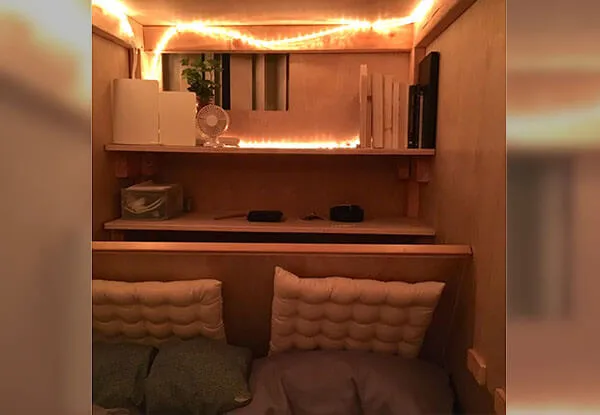
The outside of the pod was somewhat of an eye sore, propped against the wall in the dining room. Most people probably would have just put up a temporary false wall (seriously, it's not that hard). The inside, on the other hand, is sort of cute as long as you aren't claustrophobic.
Berkowitz has a fold-down desk so he can work in his bed and a skylight to let in some natural sunshine. It even has fairy lights going through for some mood lighting. However, it does get sort of stuffy. Berkowitz is working on adding some more ventilation.
Some Millennials Are Living In Vans To Combat High Rent Prices

Millennials in the Bay Area are constantly looking for creative housing ideas to combat soaring rents. Some of them have turned to living in vans, which was the case for Dwayne Golstein. He works for a pathology firm in Los Altos, California. Golstein rented a 15-foot van from Craigslist to live in, which he admits, sometimes drives him a little bit crazy.
"At least once a day I lose my mind. It's low light, I’m tired, and I’m trying to get out of my clothes," he told The Washington Post. “I’m loading up my laptop. Wait, where’s my phone? I just had my phone,” he added. “Or I’ll cut up something to eat. Where are my utensils? You’re sitting basically on a bed where you can’t walk around and look. That’s the difficulty.”
It's Illegal To Live In Your Car, But It's Hardly Enforced
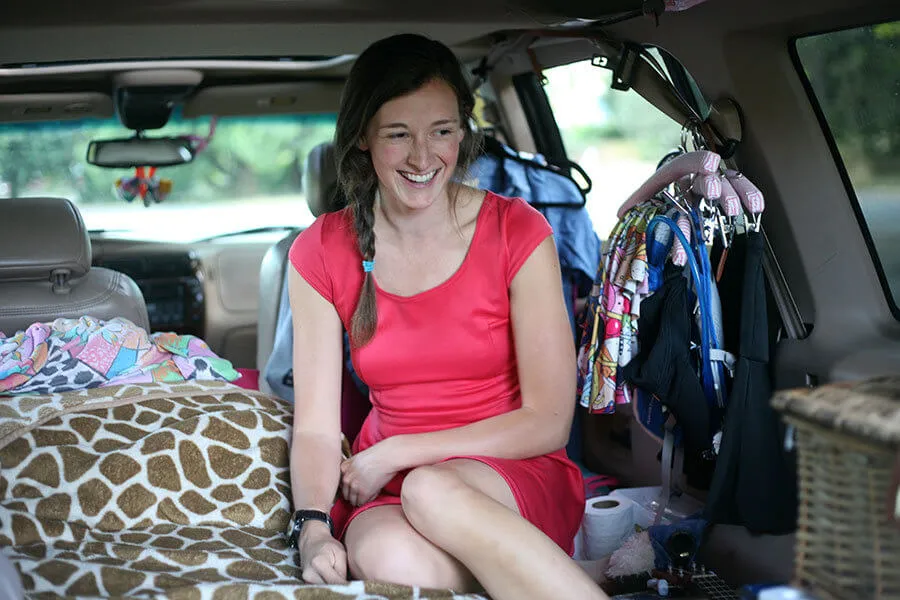
Living in a car isn't really legal in most major cities. In San Francisco, where and when you can live in your car is highly limited. According to San Francisco Municipal Police Code, "use of vehicles for human habitation" is prohibited in streets, parks, and beaches from 10 p.m. to 6 a.m. But where there's a will, there's a way (and a Walmart parking lot).
According to a survey, cities have made an effort to combat van-dwellers. In 2014 alone, 81 cities banned the practice, though Los Angeles has recently overturned the law after it was deemed unconstitutional.
As For Golstein, His Van-Dwelling Helped Him Lose Weight
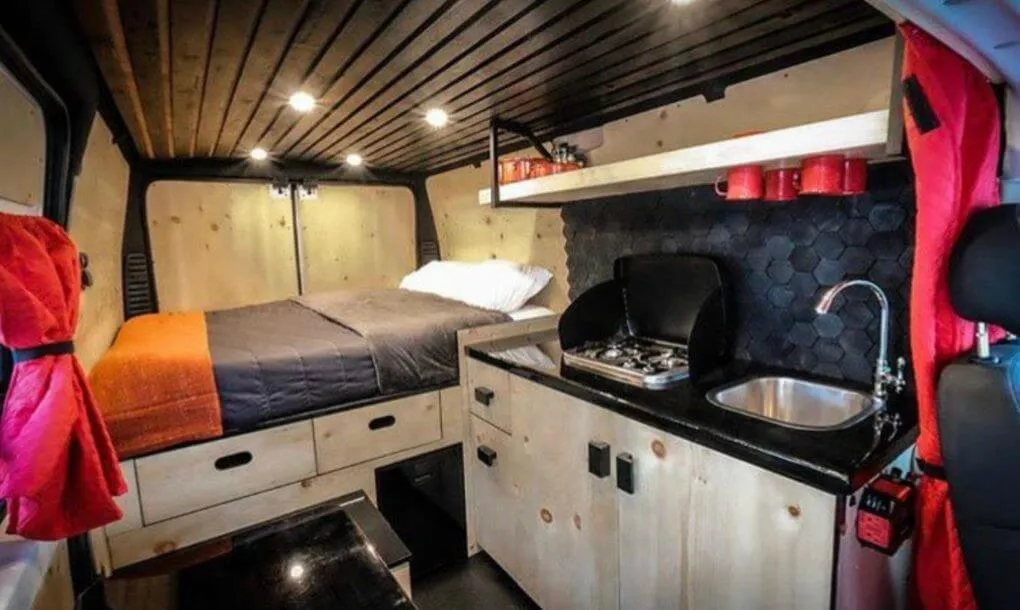
Van-dwelling is far from ideal and Golstein said it took very careful planning. He had to time his meals to limit his bathroom usage (as vans don't have bathrooms). "I mean, I can't eat food unless I’m at work, or I go out and eat, buy something. I’ve lost some weight because I walk everywhere already," he said.
“The back of the van, there’s a little stove, but I just think it would look odd at 2 o’clock in the morning for this guy to have smoke coming out of the back of the van in the neighborhood." He spends most of his time in coffee shops charging his phone and computer, but the $250 per week price tag for van rent is definitely saving him money.
This Tesla Engineer Lived In A Sprinter Van
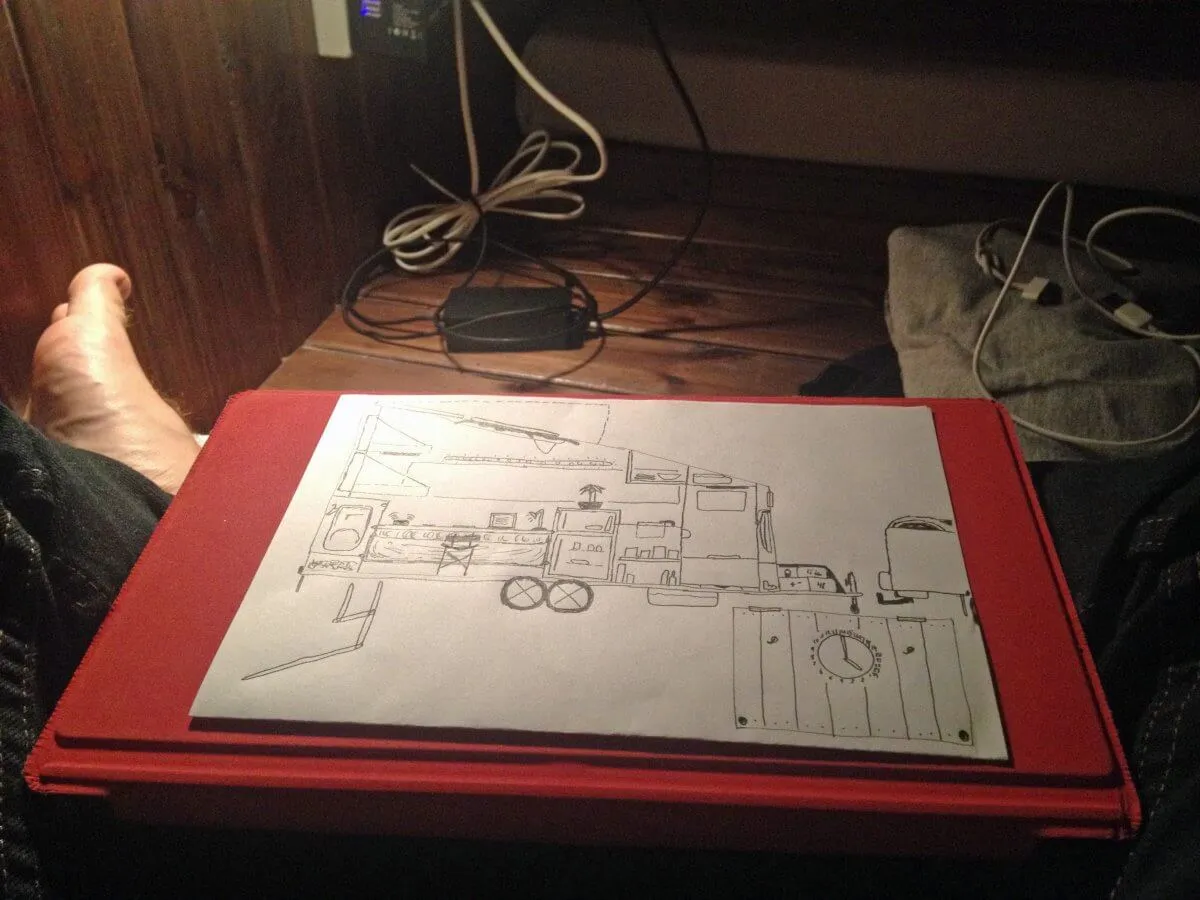
Engineers at Tesla aren't just innovative when it comes to advanced technology and automobiles – they're savvy when it comes to housing. Jason Roesslein, an engineer at Tesla, managed to pay off $14,000 in student loans by living in a Dodge Sprinter van. Roesslein was frustrated with paying $1,250 in rent each month. He previously lived with a roommate.
"That was supposed to be a temporary situation until I figured out where I really wanted to live," he told Business Insider. "As I got further and further along in my thinking, I decided that I would try to live in a van, and I eventually pulled the trigger on it."
Roesslein Was Inspired By A Co-Worker
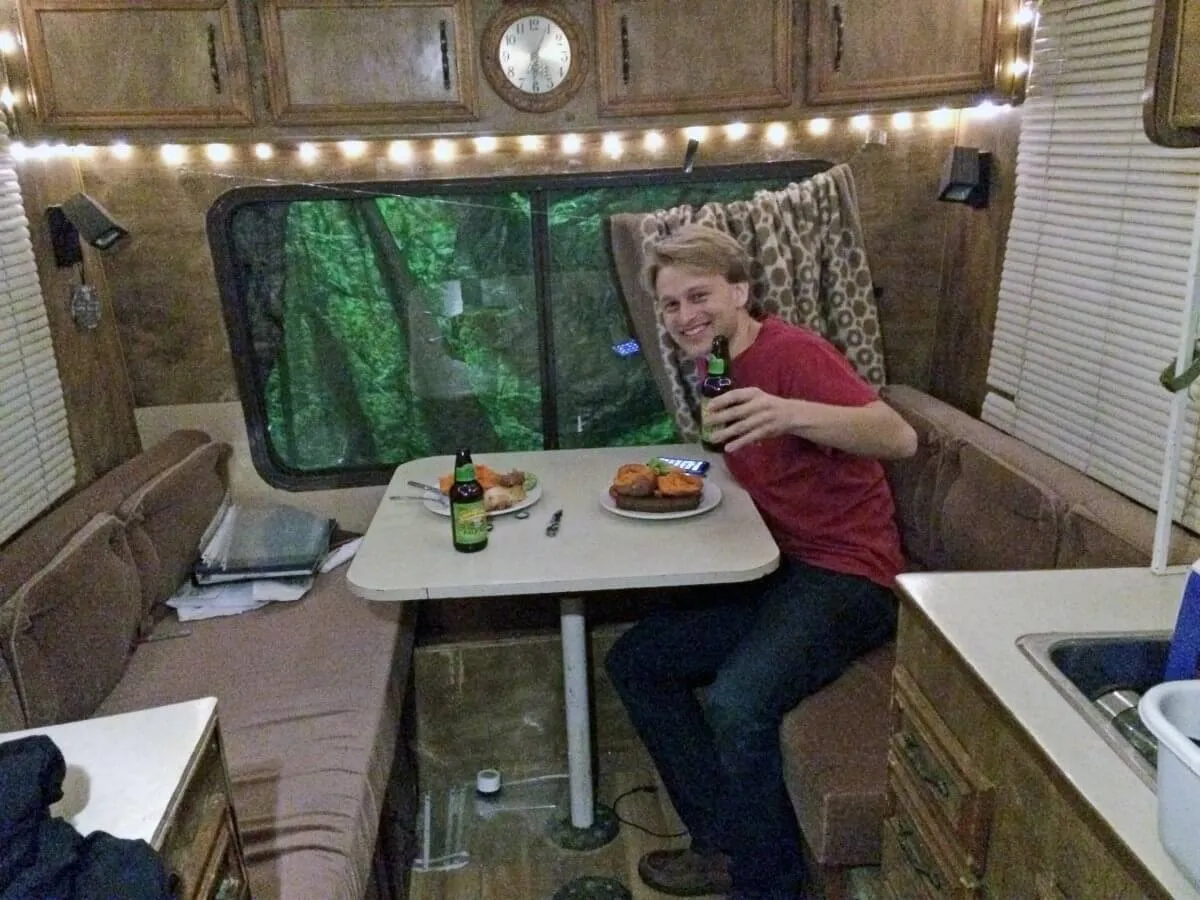
Roesslein originally wanted to invest in a box truck but was overwhelmed with the idea of a vehicle that big. He ended up meeting a fellow Tesla employee who was living in a Subaru Forester.
The man had been living in his Subaru for a year and was planning to upgrade to a Sprinter. Roesslein coopted his idea and purchased a 2006 Dodge Sprinter off eBay for $13,000. He picked it up in Texas and drove it home.
It Cost $1,000 To Turn The Sprinter Into A Home
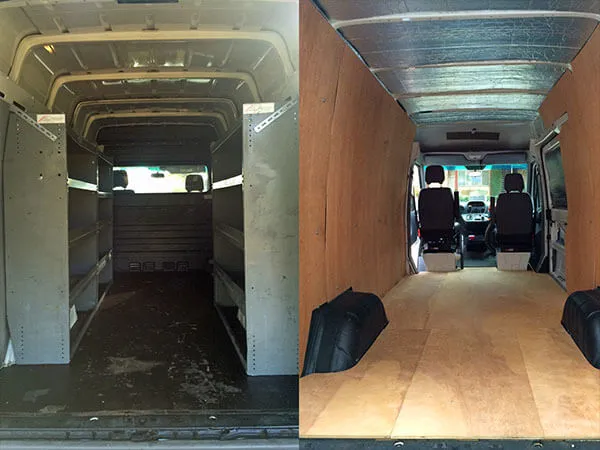
Roesslein spent $1,000 revamping his Sprinter into a tiny house. He initially slept in a sleeping bag on top of a sleeping pad. When it got cold, he used a small propane heater, but overall, he thought it was nice to sleep in the cold.
His combined monthly bills were paltry. He spent just $100 a month on car insurance and $75 a month on his cell phone plan. He showered at Tesla's corporate gym and ate breakfast and lunch at work. He'd go out for dinner after work and estimates that he spent an extra $150 a month on food because he didn't do much cooking.
31 Millennials Squeezed Into A Single House

In order to combat insane rent prices, millennials are welcoming more roommates. Some have more housemates than others. One group of 31 millennials shared a 10-bedroom, French Victorian mansion in a posh neighborhood in San Francisco. Each housemate paid $650 for a bed (which isn't a small chunk of change, especially when you have three people per room).
The community operates like a version of a commune and each housemate vows to share 1,330 hugs a week. However, the renters were issued a violation notice from the city's planning department for having too many tenants.
This Man Slept In Conference Rooms
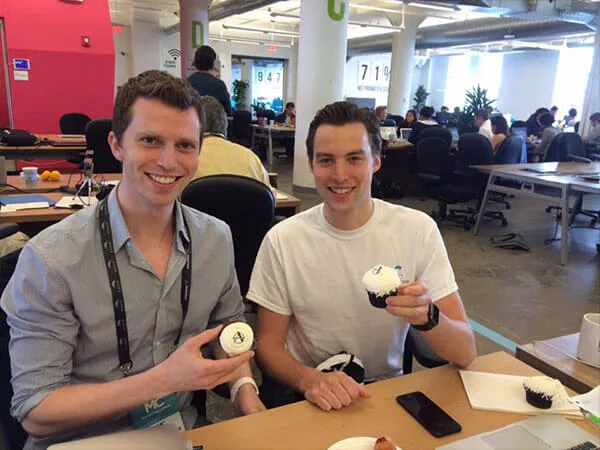
Martin Greenberg was what most of us would call homeless. He didn't have a place to go even though he held a job as CEO of the startup Bedly. Ironically, the startup's business allows people to rent fully furnished homes on demand. Though his startup managed to gain some venture capital, he still found himself crashing in conference rooms.
"You'd be surprised, the conference rooms were very comfortable," Greenberg said. "When you're working late it's hard to coordinate with friends whose couches you want to sleep on. ... The sad thing was I run a housing company."
This College Student Built a Tiny Home Instead Of Renting A Dorm Room

College housing is expensive, and when Joel Weber was shocked with the cost of a dorm room at the University of Texas, he took matters into his own hands. Weber emptied his $15,000 savings to build a tiny house in his friend's Texas backyard. His friend let him keep the portable home on the property for no cost, which allowed Weber to graduate from college without any debt.
Weber's tiny house saved him a lot of money, as the University of Texas dorms cost roughly $1,135 a month to live. If Weber had chosen to live alone in a one bedroom downtown near campus, it would have cost him around $1,913 per month.
Weber's Tiny Home Is Pretty Plush Inside
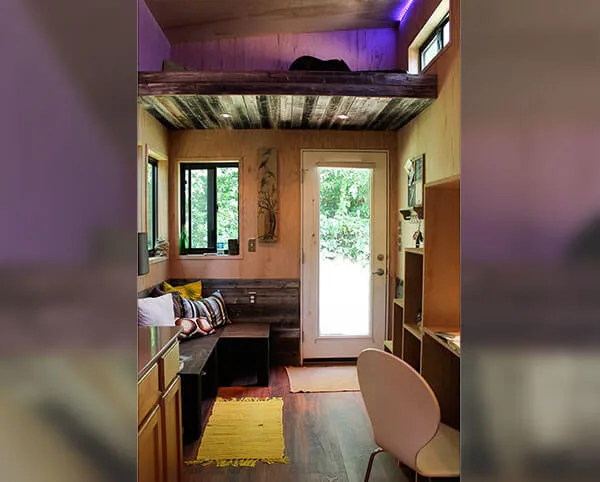
Weber didn't know much about plumbing or woodwork when he took on the project, and instead decided to apprentice under a carpenter and plumber while going to school full-time. He read as many books as he could on architecture. It was worth it because his tiny home is as spacious as a dorm room but way more stylish.
He created seating with wood scraps, given to him by people who took him in before his home was finished. It was an homage to his homes of the past. "That's how their homes live on with me," he said.
Engaged Millennials Build Tiny Home For Their Future
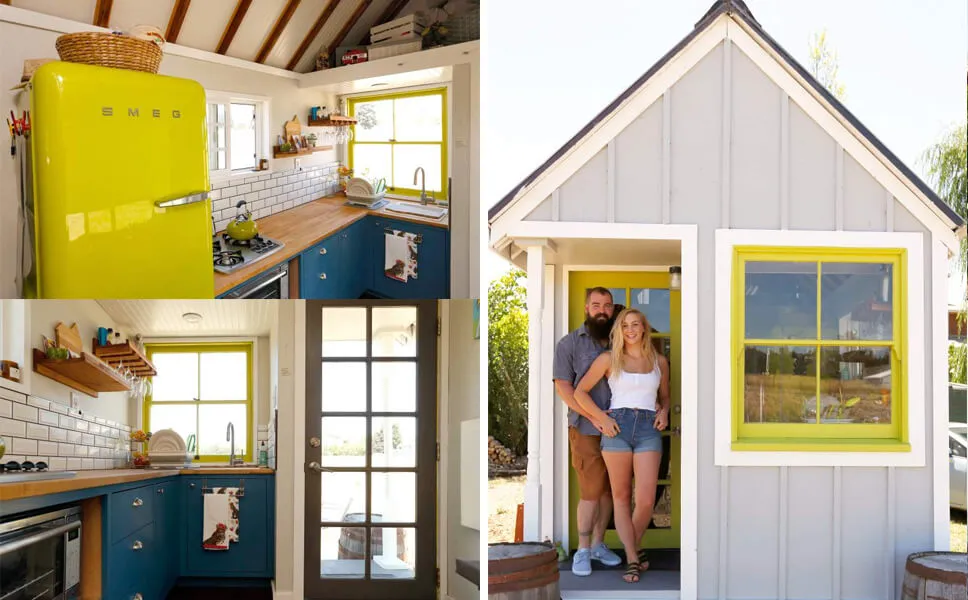
Santa Rosa, California residents Bree Rathburn and Kieran Murphy became engaged and started planning for their future. The couple needed to save money for their wedding and wanted to enjoy a honeymoon in Greece, too. They decided to pursue an alternative solution to housing by building a tiny home.
Costing just $21,000, Rathburn designed the home, which took them 18 months to build. The millennial couple has plans to park the fully-functioning home on a piece of land where Murphy will start his vineyard and wine label.
Google Software Engineer Lives In A Truck
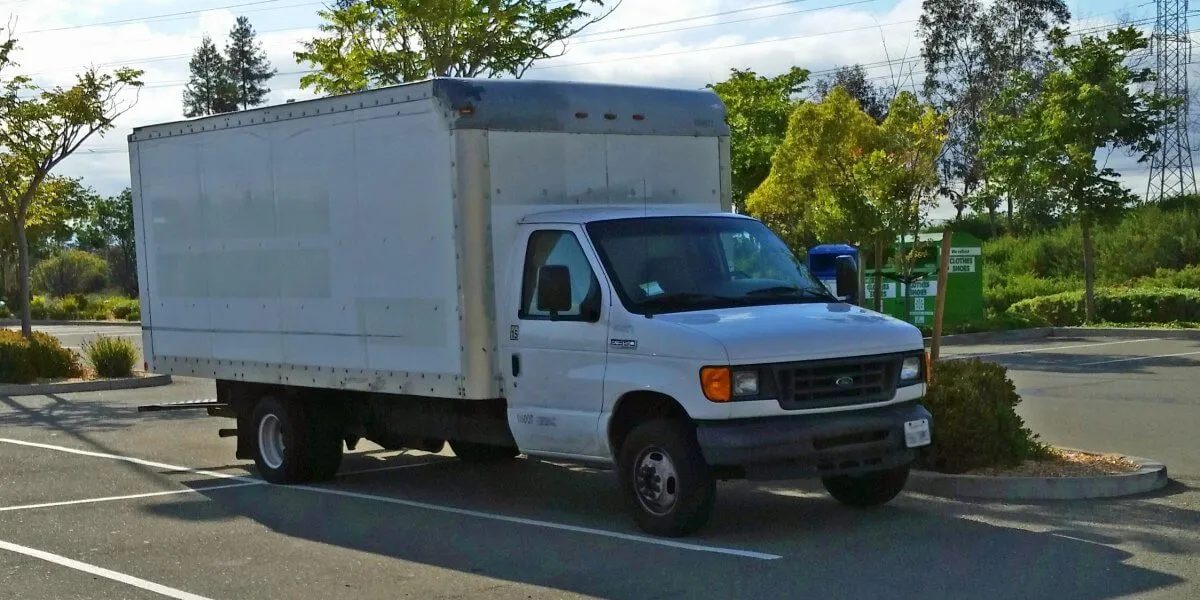
In May of 2015, 23-year-old Brandon (who used a pseudonym because he didn't want to get in trouble) got a coveted job as a software engineer for Google. He subsequently moved into a 128-square foot Ford box truck, which he parked in Google's campus parking lot, where he worked.
Brandon's 2006 truck had 157,000 miles on it when he purchased it for $10,000. His only monthly housing expense is the $121 he pays for car insurance. Previously, he was spending about $2,000 to live in Google's cheapest employee housing, where he shared a room with another employee.
But Truck-Living Has Its Downside
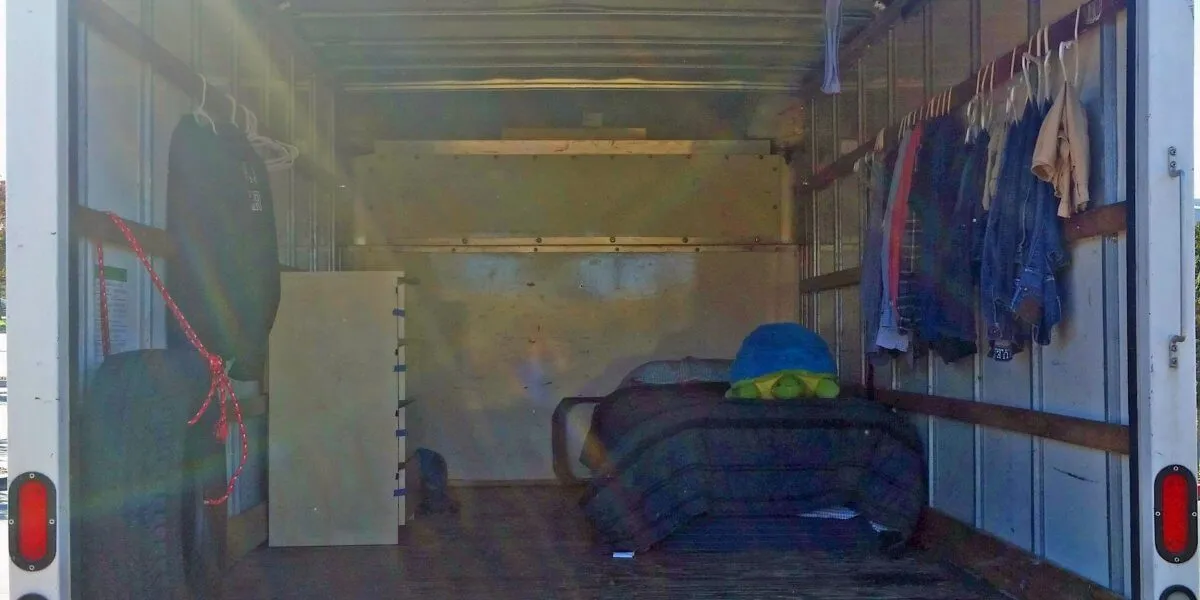
Brandon enjoys the savings he gets from living in a box truck, but he's not too thrilled about some of the less desirable features.
"I don't actually own anything that needs to be plugged in," he explained. "The truck has a few built-in overhead lights, and I have a motion-sensitive battery-powered lamp I use at night. I have a small battery pack that I charge up at work every few days, and I use that to charge my headphones and cellphone at night. My work laptop will last the night on a charge, and then I charge it at work."
Brandon Showers And Eats On Google's Campus

Brandon doesn't have the luxury of a kitchen or shower, but luckily, Google takes care of their employees. Brandon eats all three meals at work and showers every morning in the corporate gym. He graduated from college with $22,434 worth of student loans and managed to shrink that number to $16,449 in just four months. He hopes to pay them off completely in six months.
He also enjoys his cheap living situation because he gets to actually enjoy San Francisco. He can eat out at nice restaurants and see the city's booming nightlife scene. He doesn't have to worry about pouring the majority of his income into an apartment.









